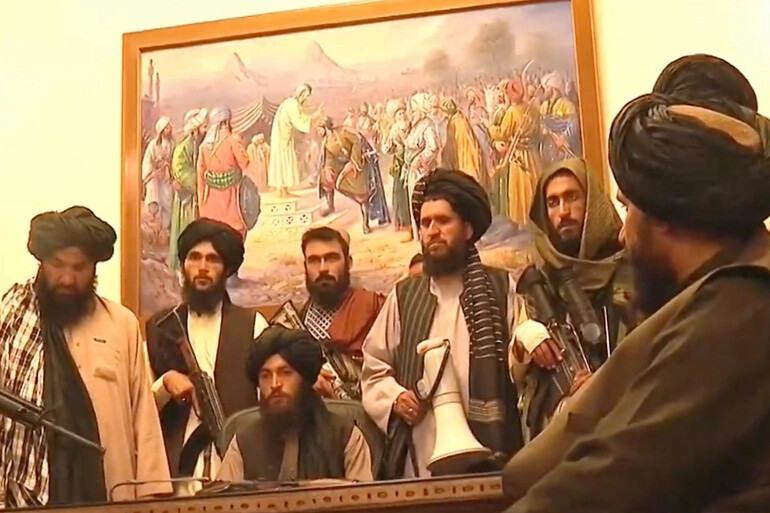 POLICY
POLICY
 POLICY
POLICY
 POLICY
POLICY
Following the Taliban’s taking of Kabul and effectively gaining control of Afghanistan, social media companies are having to deal with a novel problem: Should they allow the Islamist group to post content on their platforms?
Facebook Inc. doesn’t see the Taliban as just another government, calling the group a terrorist organization. For that reason, it is banned from using the platform under its “Dangerous Organization” policies. “This means we remove accounts maintained by or on behalf of the Taliban and prohibit praise, support and representation of them,” the company told the BBC.
Facebook added, “We also have a dedicated team of Afghanistan experts, who are native Dari and Pashto speakers and have knowledge of local context, helping to identify and alert us to emerging issues on the platform.”
The policy should be the same for WhatsApp, which is owned by Facebook, although it seems the Taliban have been using the messaging platform themselves. According to reports, the group has been promulgating messages on the app in an attempt to win over the hearts and minds of the Afghan public. Banning such accounts is not straightforward, though, given the fact that WhatsApp uses end-to-end encryption.
“As a private messaging service, we do not have access to the contents of people’s personal chats; however, if we become aware that a sanctioned individual or organization may have a presence on WhatsApp, we take action,” a spokesperson for WhatsApp explained to Vice.
Twitter Inc. said it will not outright ban any posts relating to the group, alluding that such a move right now would be rash. “The situation in Afghanistan is rapidly evolving,” a Twitter spokesperson said. “We’re also witnessing people in the country using Twitter to seek help and assistance. Twitter’s top priority is keeping people safe, and we remain vigilant.” The company added that as usual, all posts will have to adhere to Twitter’s policies, specifically the “glorification of violence.”
Google LLC-owned YouTube as well as ByteDance Ltd.-owned TikTok have taken the same route as Facebook, embracing a zero-tolerance stance on banning Taliban content.
In a press conference, Taliban spokesman Zabihullah Mujahid criticized Facebook, which he said is “claiming to be promoters of freedom of speech” but is suppressing free speech itself. Mujahid has in the past been the go-to man when it comes to speaking to the western press, and he also has thousands of followers on Twitter.
As has been pointed out recently, the Taliban is not as backward as people tend to think when it comes to technology.
Support our mission to keep content open and free by engaging with theCUBE community. Join theCUBE’s Alumni Trust Network, where technology leaders connect, share intelligence and create opportunities.
Founded by tech visionaries John Furrier and Dave Vellante, SiliconANGLE Media has built a dynamic ecosystem of industry-leading digital media brands that reach 15+ million elite tech professionals. Our new proprietary theCUBE AI Video Cloud is breaking ground in audience interaction, leveraging theCUBEai.com neural network to help technology companies make data-driven decisions and stay at the forefront of industry conversations.